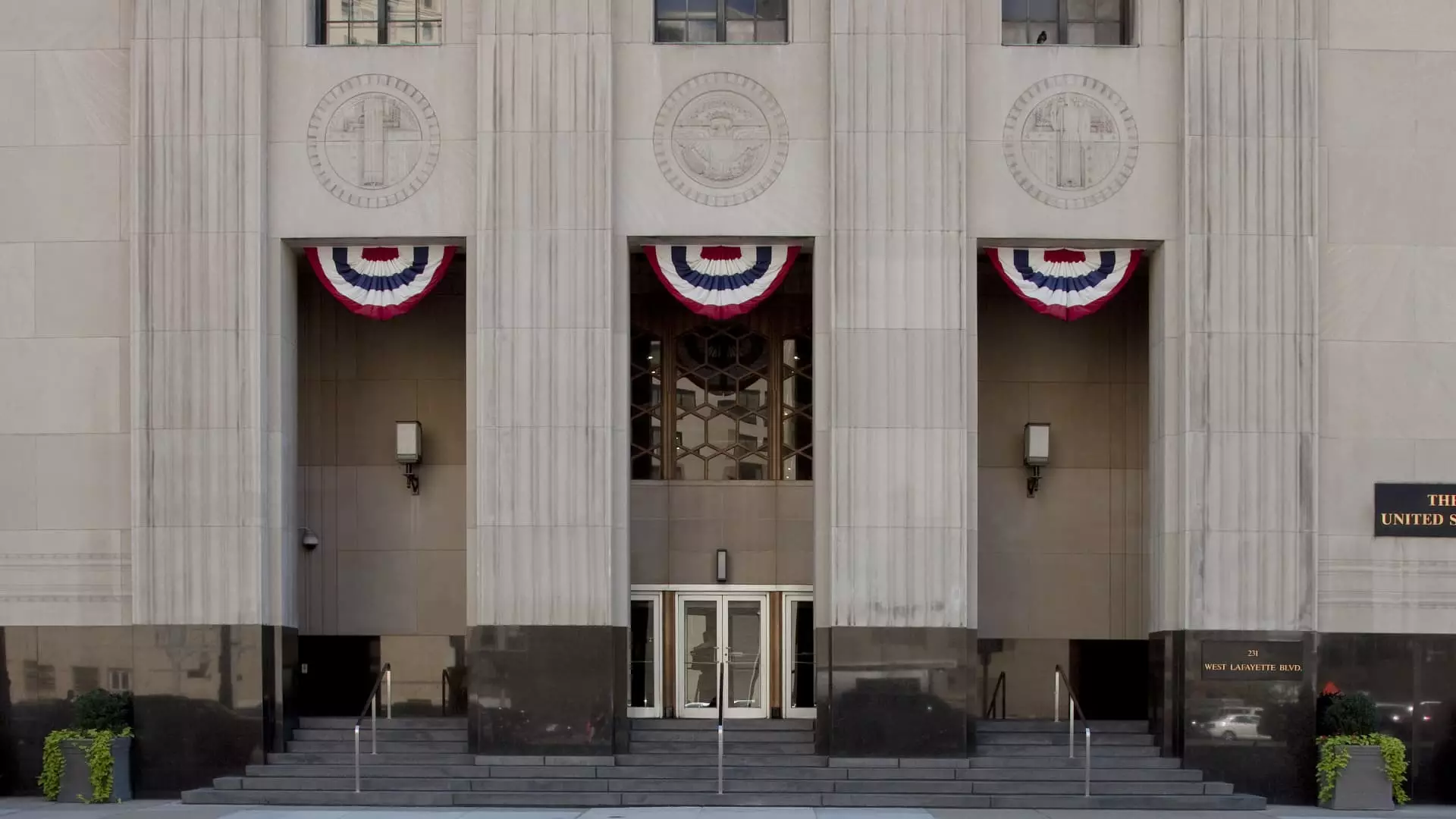In an alarming intersection of science and security, the recent arrest of researcher Yunqing Jian and her boyfriend Zunyong Liu has revealed the darker side of academic endeavor. Charged with smuggling a plant pathogen that threatens global agricultural stability, their case raises urgent questions about the integrity of academic research and the borders that separate ethical inquiry from reckless experimentation. Despite the advanced technologies and systems in place to safeguard our nation from biological threats, it appears that well-documented regulations can be ignored by those driven by ambition or misguided curiosity.
Academic Ambitions Gone Awry
At the heart of this scandal is a well-respected institution: the University of Michigan. Yunqing Jian, a postdoctoral fellow at the Molecular Plant-Microbe Interaction Laboratory, was seemingly engaged in legitimate research—until the line was crossed. It begs the question: at what point does the quest for knowledge become an ethical and legal transgression? Liu’s decision to smuggle the fungus Fusarium graminearum, a pathogen linked to considerable economic costs and potentially devastating health effects, exemplifies a perilous disregard for the potential consequences of their actions. As researchers, they surely understood the implications of handling such a dangerous organism; yet, they allegedly chose to pursue their research through dubious means rather than abiding by established protocols.
The Illusion of Innocence
Liu’s initial claims—that he was oblivious to the nature of the contents in his backpack—seem not only disingenuous but negligent. Following the discovery of the pathogen, his subsequent admission that he intentionally hid the samples reveals a deeper truth: he knew exactly what he was doing was illegal. This revelation pivots the narrative from mere curiosity to willful malfeasance. When faced with such choices, why do some individuals opt for deceit rather than transparency? This case should serve as a wake-up call for universities and researchers alike; the lines between ambition and ethical practice can blur, and those who choose the path of subterfuge endanger not only their careers but public safety as well.
Information Security in Question
The entanglement of Jian’s and Liu’s digital correspondence demonstrates another troubling aspect of this incident. As they conspired to smuggle materials into the United States—discussing covert means to transport seeds, one could argue they embody the classic tale of academic hubris leading to perilous folly. The complexities of securing sensitive biological research must be fortified against not just external threats but internal lapses in judgment and ethics. It raises a daunting question: How effectively are our institutions monitoring the integrity of their own research environments?
Consequences Beyond Borders
While the petty ambitions of two individuals may seem like an isolated transgression, the broader implications are anything but trivial. Fusarium graminearum is a notorious fungus, linked to significant agricultural damage and even human health issues. Its introduction into the U.S. could expose crops and livestock—our food supply—to unforeseen harm. The lack of vigilance in ensuring that researchers adhere to regulatory standards poses a direct threat not just to public health but to economic stability. This troubling incident illuminates how even seemingly minor breaches can evolve into considerable crises, emphasizing the urgent need for robust oversight in biological research.
University Accountability and Responsibility
In the aftermath of these events, the University of Michigan’s condemnation of Jian’s and Liu’s actions provides an essential acknowledgment of institutional responsibility. Their statement firmly disassociates the university from any wrongdoing, emphasizing that they did not receive funding related to the accused individuals’ conduct. However, this incident prompts a deeper introspection into institutional practices regarding recruitment, oversight, and ethics training. The academic world is not an insulated domain; researchers operate within societal contexts that demand accountability, transparency, and a commitment to the welfare of the larger community.
This case is emblematic of the dangers posed by unchecked ambition and ethical lapses in academia. It serves as a chilling reminder that the pursuit of knowledge, while noble, must never come at the expense of integrity or public safety. The plea for a stronger ethical framework in research is more pressing than ever, as the stakes are not only individual reputations but the collective security of our society and environment.

Leave a Reply